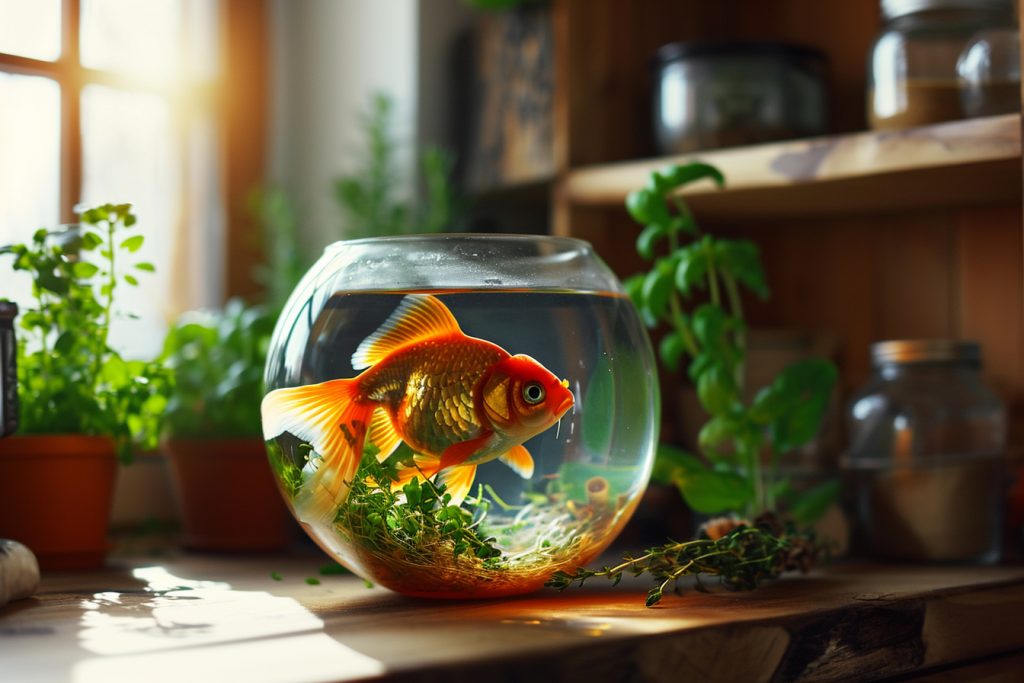Fishkeeping is a hobby beloved by many, but amidst the joy of observing the tranquil movements of our aquatic friends, it’s crucial to consider the environmental impact of our miniature underwater worlds. Embracing eco-friendly practices not only benefits the planet but also promotes a healthier environment for our finned pets. As we dive into the world of eco-conscious fishkeeping, we’ll explore how sustainability can be intertwined with the aquatic lifestyle, ensuring our aquatic endeavours are as kind to the earth as they are to our gilled companions.
Sustainable Tanks: Getting Started
Embarking on an eco-friendly fishkeeping journey begins with setting up a sustainable tank. The key here is to opt for equipment that is both energy-efficient and durable. Instead of buying new, consider searching for second-hand tanks and accessories, which reduces waste and often comes with an added bonus of being more affordable. LED lighting, another green choice, not only consumes less energy but also generates less heat, which can help in maintaining stable water temperatures without overworking heaters.
Incorporating live plants into your aquarium isn’t just visually appealing—it’s also an eco-friendly move. Plants help to oxygenate the water, reducing the need for powerful air pumps, and they absorb nitrates, minimizing reliance on chemical filtration. More than that, a well-planted aquarium can create a self-sustaining ecosystem that requires fewer resources over time. Be sure to research and opt for aquatic plants that thrive in your tank’s specific conditions, maximizing their natural benefits with minimal need for interventions.
Choosing Fish: Eco and Ethical
When selecting your swimmers, it’s important to go beyond aesthetics and consider the ecological footprint of your choices. Start by researching fish species that are not endangered or overfished, and if possible, choose captive-bred specimens over wild-caught ones. This reduces the demand on natural populations and helps to prevent the destabilization of aquatic ecosystems. Plus, captive-bred fish are often better adapted to life in an aquarium and can make for a smoother fishkeeping experience overall.
Additionally, consider the native habitats and natural behaviors of your potential pets. Opting for species that have less of an environmental impact when bred in captivity is a wise choice. Also, look for fish that are compatible with each other and the conditions in your tank to avoid stressful overcrowding and excessive waste production. A harmonious tank not only promotes the well-being of its inhabitants but also reduces the need for intervention and maintenance, naturally aligning with an eco-conscious approach.
Maintenance: Green Routine Tips
Maintaining an aquarium can be resource-intensive, but with a few green routine tips, it’s possible to lessen the environmental impact. One major way to conserve water is by performing smaller, more frequent water changes. This keeps the ecosystem balanced and healthy, decreasing the likelihood of needing drastic interventions that require large amounts of water. Also, when you change the water, consider repurposing the nutrient-rich old water for your houseplants or garden, giving it a second life.
Furthermore, when it comes to keeping the tank clean, steer clear of harsh chemicals that can harm the aquatic environment and, eventually, local waterways. Instead, use natural cleaning methods like algae-eating fish or snails, and gentle scrubbers to maintain your tank. Monitor your tank’s filtration system frequently, as a clean and effective filter will operate more efficiently, thereby conserving energy. Remember, a little elbow grease and regular attention can drastically reduce the need for energy-intensive gadgets and non-eco-friendly treatments.
An eco-friendly approach to fishkeeping is not just a trend; it’s a meaningful shift towards a more responsible and sustainable hobby. By choosing sustainable tanks, selecting ethical fish stock, and adopting green maintenance practices, we can create thriving underwater sanctuaries that are both enjoyable and gentle on our planet. As we navigate the currents of conscientious fishkeeping, let’s remember that every small effort helps conserve our precious aquatic resources, ensuring that our hobby contributes positively to the wider ecosystem. Happy fishkeeping, and may your eco-conscious aquarium be a ripple of change in the vast ocean of environmental stewardship!









